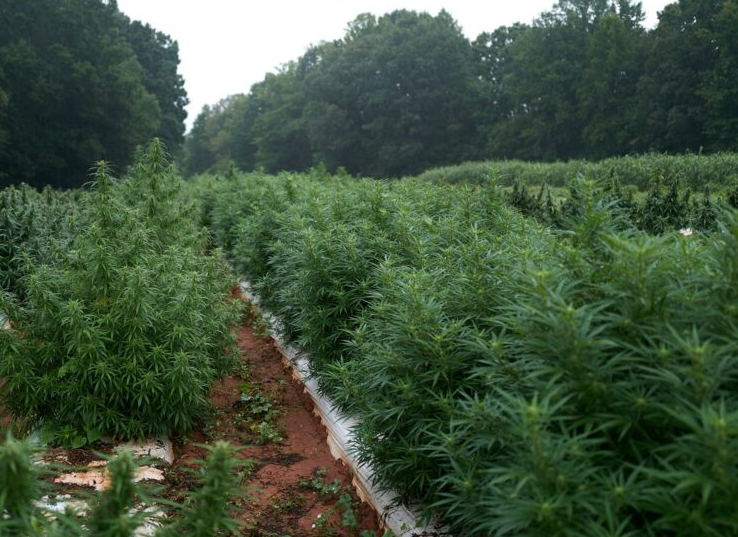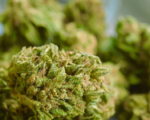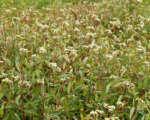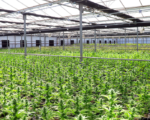The U.S. hemp industry is facing its biggest test since federal legalisation in 2018. A new report from the Congressional Research Service (CRS) urges lawmakers to rethink the legal definition of hemp as disputes flare across states and courts.
A Growing Divide Between States
When Congress opened the door to hemp nearly seven years ago, the focus was fibre, grain, and cannabidiol (CBD). Few foresaw the boom in intoxicating hemp derivatives like Delta-8 THC. Yet these products now dominate shelves across smoke shops and gas stations in dozens of states.
More than a dozen states have taken the hard line and banned such products outright. Others have adopted a patchwork of rules, treating them either as cannabis, dietary supplements, or consumer goods. Some states—Florida and Tennessee among them—still allow wide availability.
The CRS report highlights this tension, pointing out how a “federal definition that permits intoxicating hemp” leaves states scrambling to plug legal gaps.
Legal Grey Areas and Court Challenges
The legal disputes are mounting. State bans are already colliding with federal definitions, sparking lawsuits and appeals.
Take Texas, for example. Retailers sued the state after lawmakers prohibited Delta-8 THC, arguing the move conflicted with the federal hemp law. The courts have been wrestling with where federal authority ends and state control begins.
In Minnesota, regulators have tried to rein in hemp-derived THC edibles, only to see an influx of legal challenges from industry groups.
This legal tug-of-war has created a marketplace full of contradictions. Consumers in one state can buy a hemp gummy with psychoactive effects, while in the next state over, possession of the same product could lead to criminal charges.
The CRS says Congress has the option to step in and “clarify the scope” of hemp products nationwide.

The Four Considerations for Congress
The report from Legislative Attorney Dorothy Kafka identifies four points Congress may need to address if it wants to avoid ongoing confusion. These are:
-
Whether the definition of hemp should account for intoxicating cannabinoids, not just total Delta-9 THC.
-
How to deal with synthetically derived cannabinoids, which some argue are outside the intent of the Farm Bill.
-
The role of states in restricting hemp products that meet federal definitions.
-
Lab testing standards and how THC levels are calculated, including the “dry weight basis” rule.
Each of these issues is more than technical language. They cut to the heart of a billion-dollar marketplace, affecting farmers, processors, retailers, and consumers alike.
Economic Stakes for Farmers and Industry
Farmers are watching closely. For many, hemp was sold as the next cash crop in 2018, only for prices to collapse as supply outpaced demand. The intoxicating hemp trade has, ironically, kept some parts of the sector alive.
Yet the industry remains volatile. According to USDA data, U.S. hemp acreage dropped from more than 465,000 acres in 2019 to less than 30,000 acres in 2023.
Here’s how the picture looks:
| Year | Licensed Hemp Acres (USDA) | Market Conditions |
|---|---|---|
| 2019 | 465,000+ | Boom year, CBD rush |
| 2020 | ~280,000 | Oversupply hits prices |
| 2021 | ~100,000 | Decline accelerates |
| 2022 | ~60,000 | Industry contraction |
| 2023 | <30,000 | Intoxicating hemp props up demand |
Those numbers tell the story of a sector that grew fast, stumbled harder, and is now hanging by a thread.
Consumer Confusion and Health Concerns
Consumers aren’t exactly clear on what’s legal, what’s safe, and what’s being tested. Some hemp-derived THC gummies are sold in packaging that looks nearly identical to candy. Others carry no warnings at all.
Poison control centres in states like Virginia and New York have reported a spike in calls involving accidental ingestion by children. Regulators say dosage levels vary wildly from product to product, and many are never tested in accredited labs.
This has prompted public health officials to call for federal guardrails. They argue the patchwork of state laws leaves consumers exposed and makes enforcement harder.
And here’s the kicker: the products are legal under federal law as long as they contain no more than 0.3% Delta-9 THC on a dry weight basis. That small legal clause is driving a multi-billion-dollar industry.
The Road Ahead in Congress
So where does this leave Congress? Lawmakers are already under pressure to finalise a new Farm Bill after repeated delays. The hemp issue is unlikely to dominate, but it could become one of the stickiest debates in the negotiations.
Some members have already hinted at changes. Senator Jon Tester of Montana has pushed for stricter oversight, while other lawmakers from hemp-friendly states like Kentucky and Oregon have warned against overregulation that could wipe out local businesses.
It’s a balancing act—one that weighs consumer safety, state authority, and economic opportunity.
For now, the CRS report doesn’t prescribe a solution. It simply lays out the challenges and leaves the ball in Congress’s court. But the message is clear: the definition of hemp is no longer just a line in federal law. It’s a flashpoint in American agriculture, public health, and commerce.
Maria Garcia is an award-winning author who excels in creating engaging cannabis-centric articles that captivate audiences. Her versatile writing style allows her to cover a wide range of topics within the cannabis space, from advocacy and social justice to product reviews and lifestyle features. Maria’s dedication to promoting education and awareness about cannabis shines through in her thoughtfully curated content that resonates with both seasoned enthusiasts and newcomers alike.








